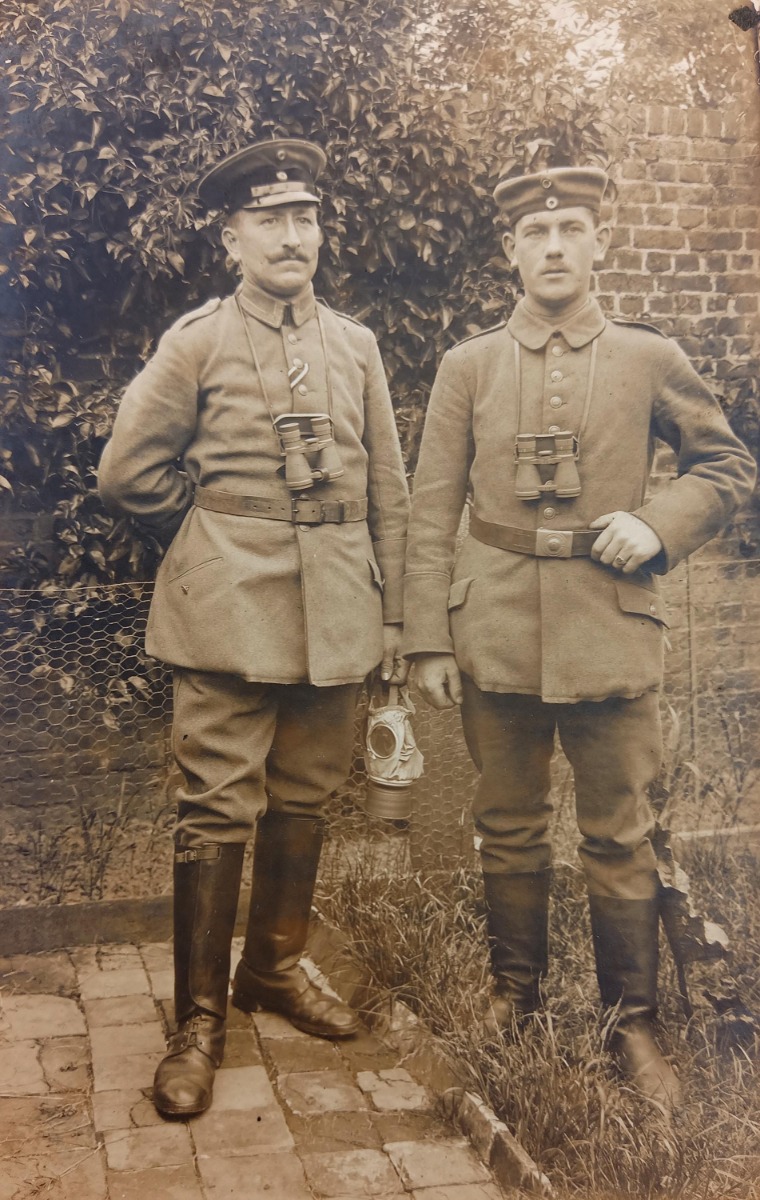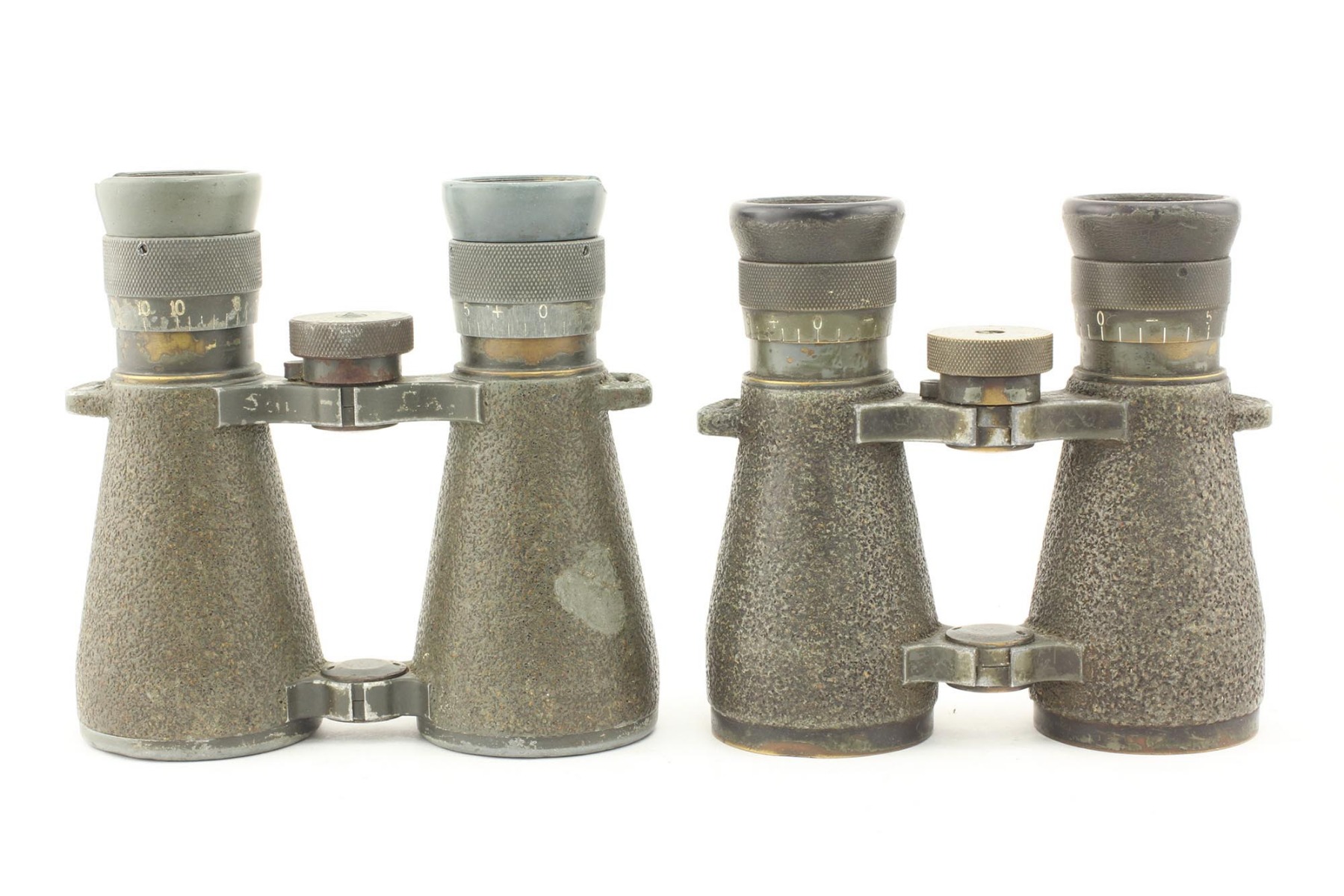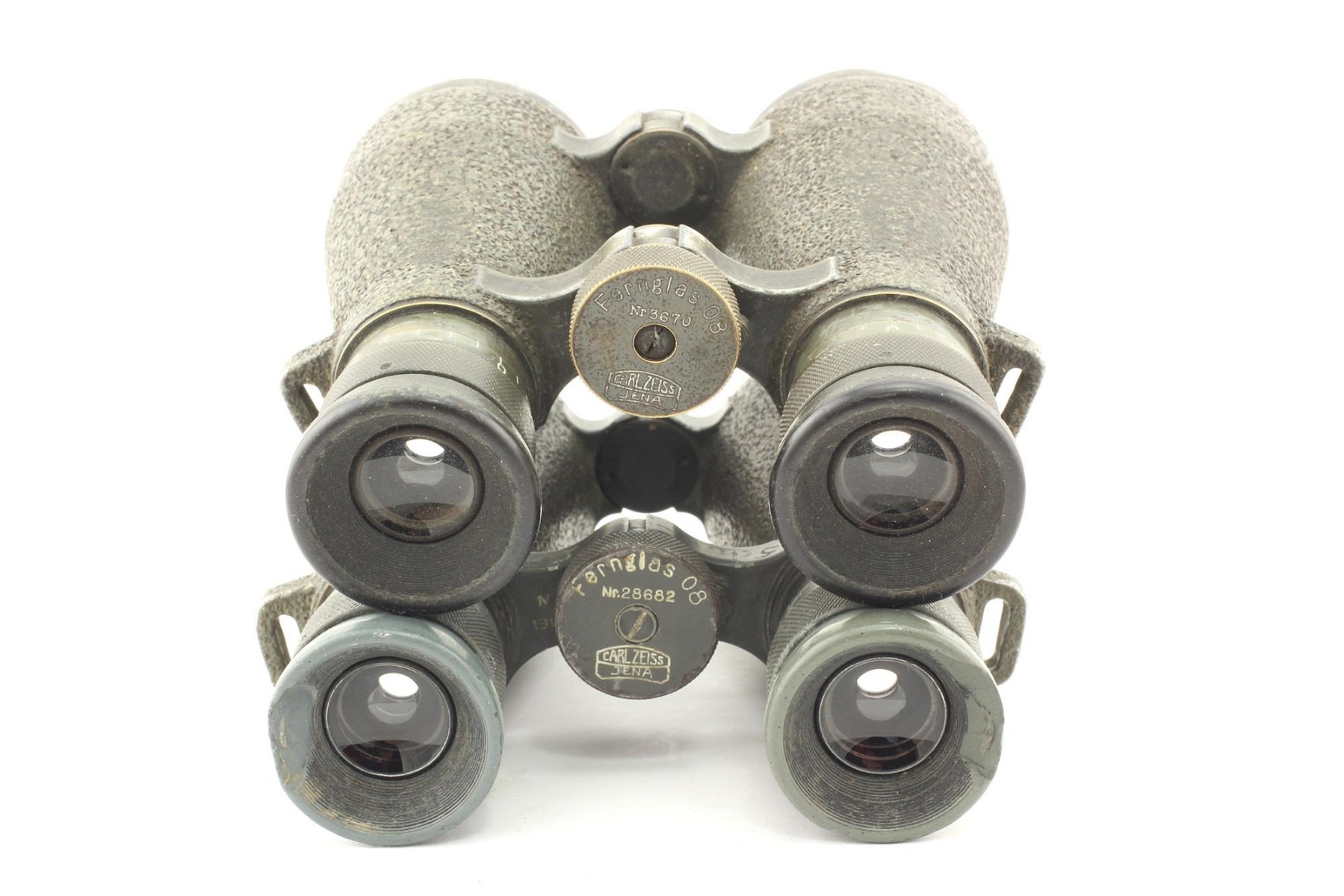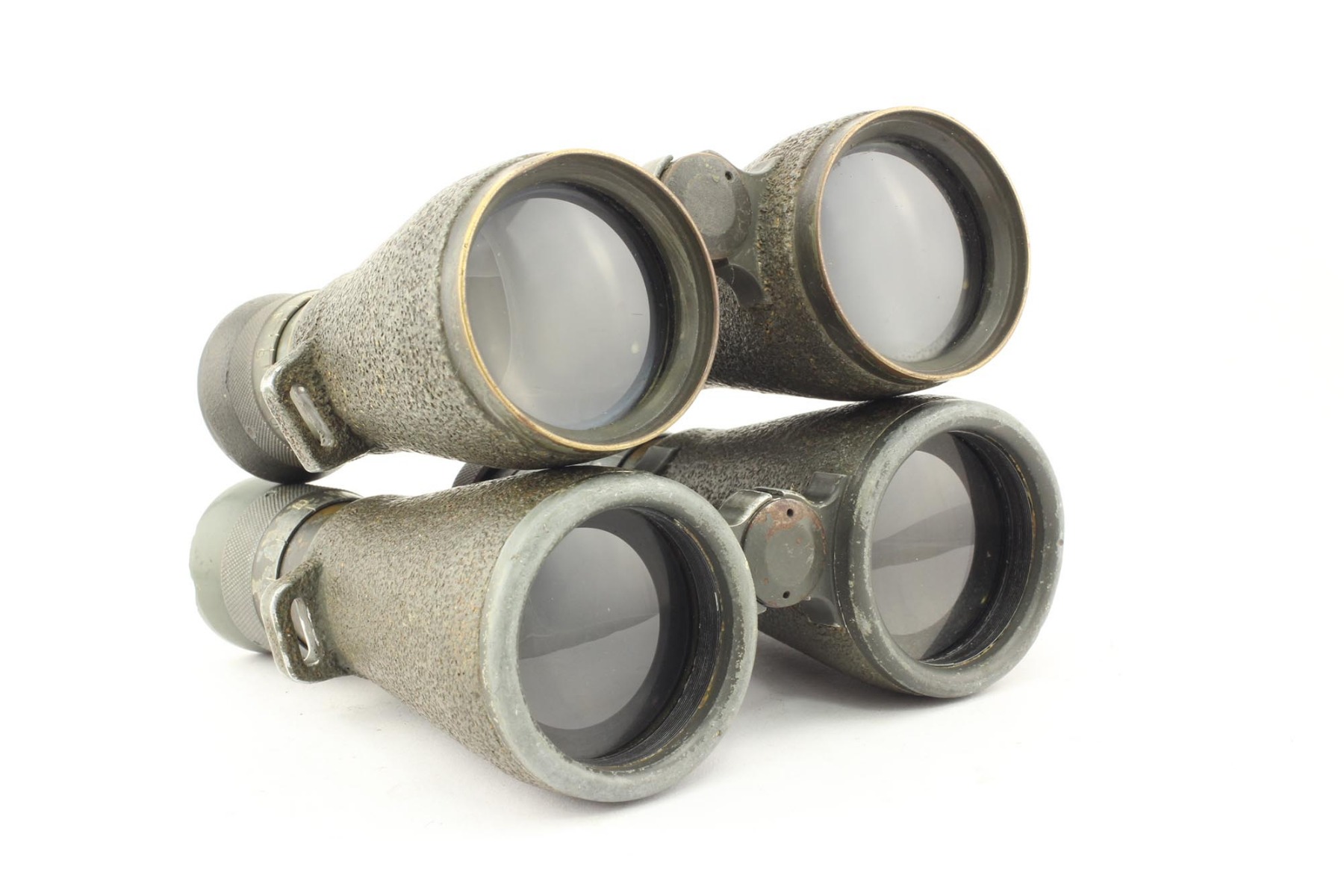Magnification: 6x
Aperture (objective diameter): 39 mm
Exit pupil diameter: 6.5 mm
Field of view: 4.4 °
Visible field of view (eyepiece FOV): 25.8°
The closest focusing distance: 3.8 m
Width: 12.0 cm
Height: 12.0 cm
Weight: 465 g
Production date: 1916.
Binoculars Carl Zeiss Jena Fernglas 08
The German company CP Goerz released a military binocular Feldglas 08 in 1908, the optics of which was built according to a simple Galilean scheme (with only two lenses). The device turned out to be very reliable, compact and cheap in production, it possessed high light transmission (approximately 80% versus 55-60% for prismatic binoculars of that time); therefore, it gave out a very bright image. The significant drawback of the considered binocular was its very small field of view - 4.4° (prismatic binoculars of that time had field of view equal to 6° - 8°). The device became popular in the army and it was produced in large quantities by many German companies: Leitz, Rodenstock, Goerz, Zeiss, Busch, Spindler & Hoyer (see photo below).

The binocular was handed out to junior infantry officers and it was the only model, which was given for free by the German military office to the army. Carl Zeiss did not produce military binoculars of such type; however, they were forced to start producing them under the competitors’ pressure.
In total, Carl Zeiss released three models of military binoculars according to Galilean scheme:
- a very rare device 4x34 (about 1908-1909);
- a rare Feldglas 08 6x39 (starting from 1914 and up to 1916);
- the Feldglas 08 6x40 (starting from 1916 and up to 1918).
All three devices had their own serial numbers range, which did not correspond to a general range. There were totally produced nearly 6,500 copies of the second and third type models (see photo below).



This rare device belongs to the second type; it has objectives with diameter equal to 39 mm and 6x magnification. The robust die-cast metal body is connected by two movable hinges; the eyepieces have separate focusing, the “diagonal” knurling and front lens diameter equal to 16 mm. The binocular’s “military” application is proved by the large diameter of the central hinge clamp (lock). The interpupillary distances scale is indicated on the clamp’s base. There are two massive loops on the binocular’s side surfaces, intended for installing the neck strap (see photo).
There is the “Carl Zeiss Jenna” marking against the background of Carl Zeiss Tessar photo lens schematic image on the upper hinge lock; the serial number “No. 3670” and the model name “Feldglas 08” are located above the mentioned marking. There is the military acceptance stamp “K” – “Gewehr-Prüfungskommission” on the upper hinge - the designation of the small arms’ acceptance commission, Spandau (Berlin) and, probably, the binocular’s date of production – “IV 1916” (see photo).
The binocular’s coffer is made of thick leather and it has an original box-shaped design. There is the binocular’s manual on the inner surface of the top cover; the coffer’s inner surface is finished with felt (see photo).
The third variant of this model can be found here.

The binocular was handed out to junior infantry officers and it was the only model, which was given for free by the German military office to the army. Carl Zeiss did not produce military binoculars of such type; however, they were forced to start producing them under the competitors’ pressure.
In total, Carl Zeiss released three models of military binoculars according to Galilean scheme:
- a very rare device 4x34 (about 1908-1909);
- a rare Feldglas 08 6x39 (starting from 1914 and up to 1916);
- the Feldglas 08 6x40 (starting from 1916 and up to 1918).
All three devices had their own serial numbers range, which did not correspond to a general range. There were totally produced nearly 6,500 copies of the second and third type models (see photo below).
This rare device belongs to the second type; it has objectives with diameter equal to 39 mm and 6x magnification. The robust die-cast metal body is connected by two movable hinges; the eyepieces have separate focusing, the “diagonal” knurling and front lens diameter equal to 16 mm. The binocular’s “military” application is proved by the large diameter of the central hinge clamp (lock). The interpupillary distances scale is indicated on the clamp’s base. There are two massive loops on the binocular’s side surfaces, intended for installing the neck strap (see photo).
There is the “Carl Zeiss Jenna” marking against the background of Carl Zeiss Tessar photo lens schematic image on the upper hinge lock; the serial number “No. 3670” and the model name “Feldglas 08” are located above the mentioned marking. There is the military acceptance stamp “K” – “Gewehr-Prüfungskommission” on the upper hinge - the designation of the small arms’ acceptance commission, Spandau (Berlin) and, probably, the binocular’s date of production – “IV 1916” (see photo).
The binocular’s coffer is made of thick leather and it has an original box-shaped design. There is the binocular’s manual on the inner surface of the top cover; the coffer’s inner surface is finished with felt (see photo).
The third variant of this model can be found here.
